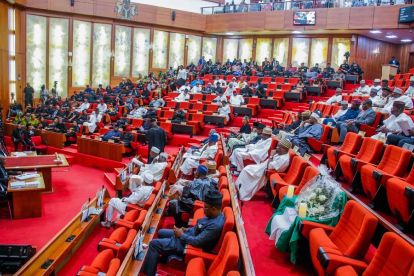
SUVs: Why the Senate Approved Landcruisers
Considering Cost and Bad Roads
The Chairman of the Senate Services Committee, Sunday Karimi, has responded to the public’s criticism of the purchase of Prado Landcruiser Sports Utility Vehicles (SUVs) for federal lawmakers. Karimi believes that the outcry is misplaced and that the Senate took several factors into account before approving the purchase. Karimi explained that the Senate considered cost effectiveness, durability, and the poor state of Nigerian roads when deciding on the SUVs. They wanted vehicles that could withstand the challenging road conditions and last for a long time.
Karimi also pointed out that the attention on lawmakers’ vehicles is unfair. He mentioned that ministers who were not elected have multiple Land Cruisers and Prados, yet no one questions them. Karimi believes that if the media and the public do not criticize the executive level for their vehicle choices, they should not single out the National Assembly.
Karimi emphasized that the decision to use Land Cruisers was not made by the senators alone. They conducted a thorough analysis, considering factors such as cost, durability, and technical issues specific to Nigerian roads. The goal was to find a vehicle that could be maintained for the next four years.
Karimi acknowledged that the issue of buying vehicles for the National Assembly arises with every new assembly. He pointed out that even state houses of assembly and local government chairmen purchase vehicles for their members. Therefore, it is not fair to single out the National Assembly for this practice.
Karimi addressed concerns about the cost of the vehicles. He revealed that when he joined the Senate, he inherited a liability of over N16 billion, which included vehicles from the 7th, 8th, and 9th assemblies. This suggests that the cost of the new vehicles is part of a larger financial responsibility. In conclusion, the Senate approved the purchase of Landcruisers after considering factors such as cost, durability, and the condition of Nigerian roads. They believe that the attention on lawmakers’ vehicles is unfair, especially when compared to the executive level. The decision-making process involved a thorough analysis, and the cost of the vehicles is part of a larger financial responsibility.






